
The Interviewees
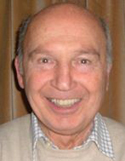
Interview with Ian Lyster - October 2021
1- Alfred James Lyster was your grandfather who went to Turkey aged around 21 as a young bank employee for the Ottoman Bank in Istanbul. Clearly he would have had little experience of banking in England at that age so do you think he was selected because of family links in banking going back earlier? Do we know much about his parentage and their professions?
I know little about my grandfather’s background, apart from the entry in the 1913 “Lyster” book which lists him as the 4th son of Lieut-Col. Septimus Lyster of Dublin who served in the Spanish Legion with his brothers in the War of Succession (?) - I did mention that the book is extremely well-researched! I am not sure if I mentioned that the Lysters were Yorkshire landowners, and Jane Lister or Lyster was “Gentleman Jack” of the TV series! I have no knowledge of him being a banker.
2- Clearly Alfred James Lyster was good at his job as he was retained in his position and within a short space married a local Italian Levantine from the de Anino family, daughter of the Dragoman of the Italian Embassy. Can we speculate that Alfred was also a quick learner as they presumably conversed in French? De you know much about the earlier origins of the De Anino family? Your grandmother Maria / Mary Anino though of Italian stock was educated at the English School for Girls in Istanbul as her father dies when she is young and her mother re-marries the English Harbour Master of Istanbul. Do we know the name of this harbour master?
As mentioned, his wife - my grandmother Marie Antoinette I.F. de Anino, was brought up as an English girl after her widowed mother married Captain Henry Newbolt - Harbourmaster to the port of Constantinople, a position of some importance. This is why my father, as firstborn following her marriage to Alfred James, was christened Henry Newbolt Lyster. There does not appear to be any mention of formal training as a banker, and it is not clear if he joined the Ottoman bank in the city, or had been sent back to the UK to get some formal banking experience. As he married in 1887, he would have been only 22 at the time. I presume that they did converse in English as one can tell by the letter to “My dear parents” his wife was speaking English from an early stage.
3- Your grandmother had to spend all of WWI in Istanbul as her mother was elderly and couldn't travel and to supplement her meagre income she took in lodgers who were Germans who preferred staying in Christian homes. Do we know if these Germans were civilians or military staff helping the Ottoman war effort? Do her diaries give glimpses of the mixture of nationalities that were still around in Istanbul in those clearly difficult times?
Grandmother Lyster mentions the Dutch Legation many times in her diaries, as of course the Dutch kept an uneasy peace during WW1. She collected an “allowance” there monthly, and I presume that her husband - with knowledge of the banking system, was able to pay the Dutch in the UK to transfer funds to her. She also of course, charged the German lodgers, and had a servant - Armenian I think, to do the cooking and cleaning for them all. There are also several Italian names which crop up as visitors, in the diaries.
4- Your father Henry Newbolt Lyster was rather lucky in WWI as he was pulled away from the Western Front and served the latter part of that war till 1920 on the Thracian and Ismid fronts as an interpreter, but also some risky despatch work, collecting a haul of medals. Did he speak much of his war experiences to you?
No! I learnt more about his experiences by trying to edit the book than he ever talked about. As mentioned, both he and his mother left copious notes. His are largely typed from memory, but are detailed.
5- Your father also married a local Italian Levantine, Virginia Vitalis. Do you know much about the past of the Vitalis family or their relations (her mother’s side) d’Andria?
The Vitalis (or d’Vitale) family originated from Genoa and originally set-up business on one of the Greek islands, moving to Constantinople in mid 19th century. They built 3 apartment blocks in the “Pera” or Christian part of the city. I gather that they made their money from pasta!, originally importing it but later setting-up manufacturing facilities using local durum wheat. My cousin Paul Saman, is older than me and now lives in the USA (son of my aunt Caroline who married a Czech diplomat in Istanbul), and has a son Micheal who seems interested in that side of the family and may be persuaded to give a lecture/presentation to LHF in the future, if there was interest from your side. My mother’s brother Joseph (my uncle Joe) joined the Austrian army in WW1 and fought for “The Great Powers” in the Middle East - his artillery unit gets some praise in T E Lawrence’s famous book. (Stupidly, I cannot recollect the title!)
6- You went to the English High School for Boys in Istanbul between 1947-1951. Do you remember the names of some of the local English / Westerners who were pupils there? Have you stayed in touch with any?
My main friends when I first attended the EHSB were Americans. Churchill & Powell Hutton were sons of the US Consul in the city, and Eddie & Bobbie Greenwald’s father was the representative of AP (Associated Press). However, they only stayed for 2-3 years and after they left I became more friendly with the local English boys. One of these was Charles Mill who later married - at a very young age- a Turkish girl and I lost contact many years ago. Another friend was Teddy Cole who’s father tried to establish an English-language paper called “the Turkish Post”, but it did not take off and he gave English lessons. His mother was Armenian. I last saw him in the 1950’s when he came to the UK to do his National Service. There was another English guy from the Bristol area with a surname of “Paul”. At school, there were older English boys, Desmond Whittall, and a Neal Baker, but I was not friendly with them due to the age differences.
7- When was the last time you were in Istanbul. What struck you most in terms of what had changed from your time and what hadn’t? Do you still have extended family who still live there?
I felt that my children should see something of Istanbul, and learn of the family. I took my girl’s together with my son from my first marriage there in the mid ’80’s, and Jill (my second wife who died in June this year) on a holiday there in the early ’90’s. There are Turkish relations from the Vitalis side as my late cousin Annie Vitalis married a Turk, and there are children and grandchildren from that union, but I am not in touch - my girls do have their details, and I could contact them if I ever visited again.
My uncle Joe (see 6. above) worked for Shell - as the accountant for the whole of Turkey - untrained of course, but very clever. He married a local French girl - no children - late in life, and inherited a flat in Nice which had belonged to her (LaCaze) family. When Anne Marie died, I tried to establish whether this had been left to the Lysters/Samans in his will, but got nowhere so suppose it must have (rightly) gone back to Anne Marie’s family - LaCaze.
The only family still there are grandchildren of Annie (Vitalis), who of course are Turkish, and I am sure would welcome me as relations, but I have no desire now to go there alone. My wife Jill died in June and as I am now 84, I have no desire to travel there alone, and my girls - who live quite locally - are totally absorbed in their own families and work.
8- Clearly it was a huge task to sift / decipher through the writings of your grandmother / father to write the book ‘Amongst the Ottomans’. What was the chief motivation for you for this task? Do you sometimes think how you would have developed differently as a person if circumstances were different and you spent the remainder of your life in Istanbul? Would you state you still carry some ‘Levantine Heritage’ in you despite the distance in space and time for most of your life?
Having worked for book printers most of my working life - I mentioned that I had been Production Services Director at OUP-Printing Division -, I felt able to handle the editing and production, but managed to find a publisher - I B Tauris, who saved me doing any more than the editing. It may be that the exposure you have given me may sell a few more copies - via Amazon. I greatly enjoyed doing the work, but it had to wait for my retirement to give it the time it necessitated. I am very proud of the work my father did and of both families who worked hard to achieve some success if not fame. I am pleased that the Vitalis side seem to be still interested and will help them in any way I can.
I certainly feel that I am lucky to have had such an interesting life with an interesting background, but am now reasonably happy to slowly moulder away as an elderly widower in a block of retirement flats in a small market town in SW. Lancashire!
However, If there is to be a “re-union” of former EHSB boys, I would very much like to be included.
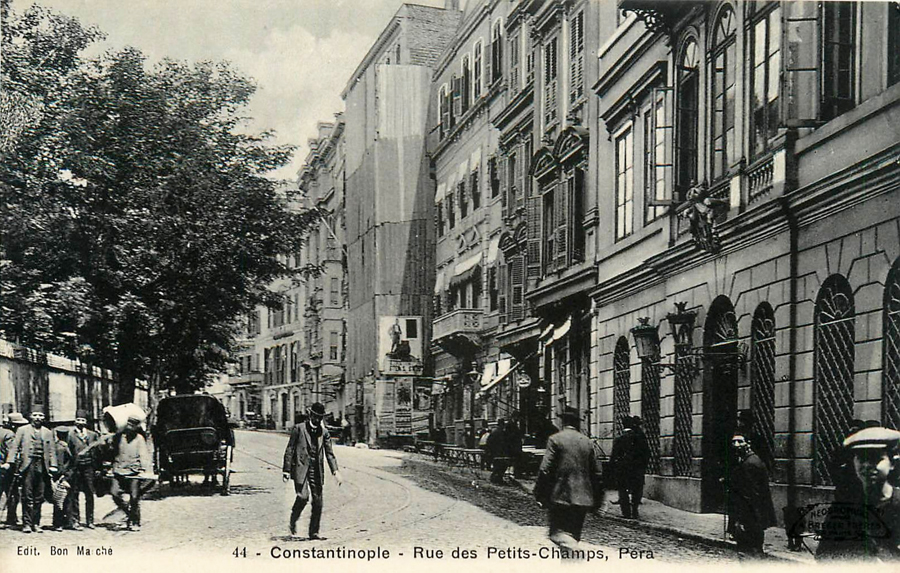
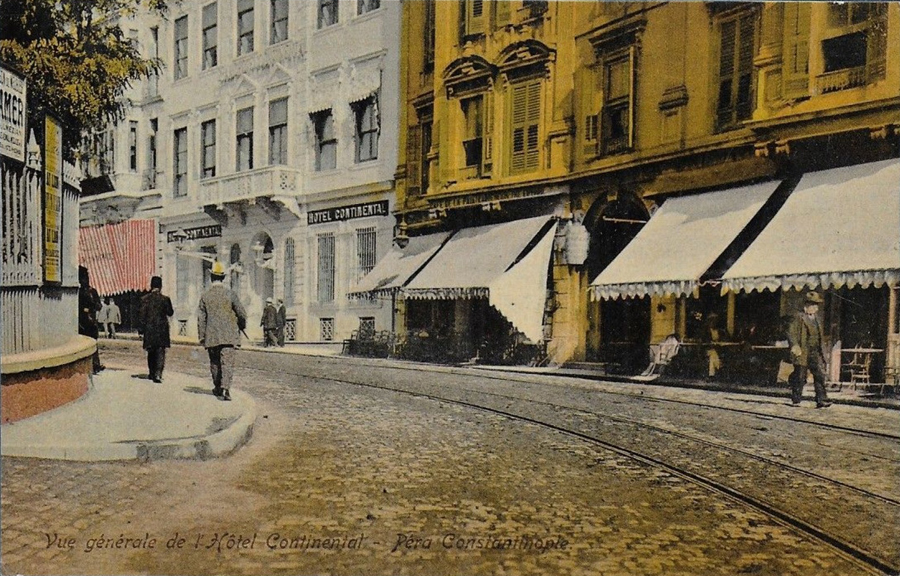
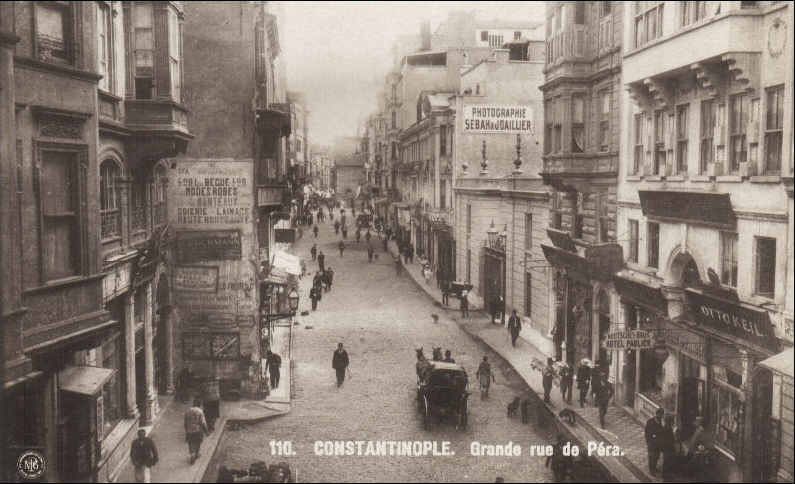
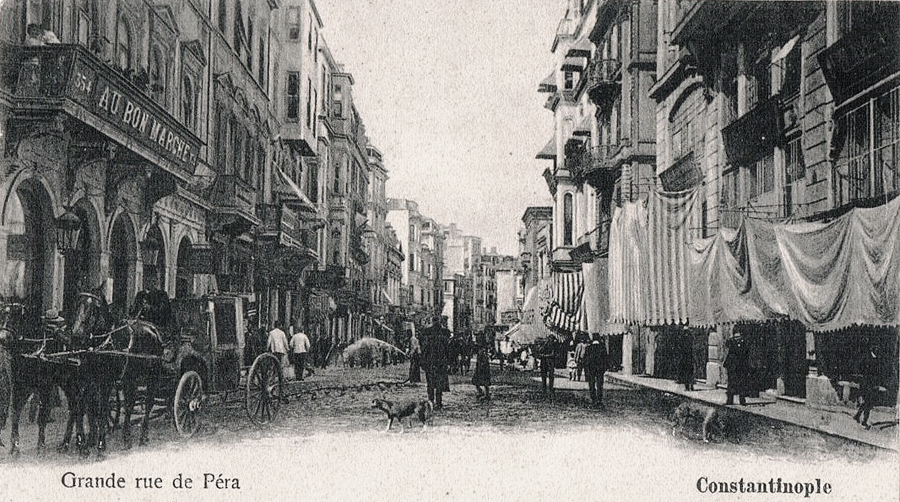
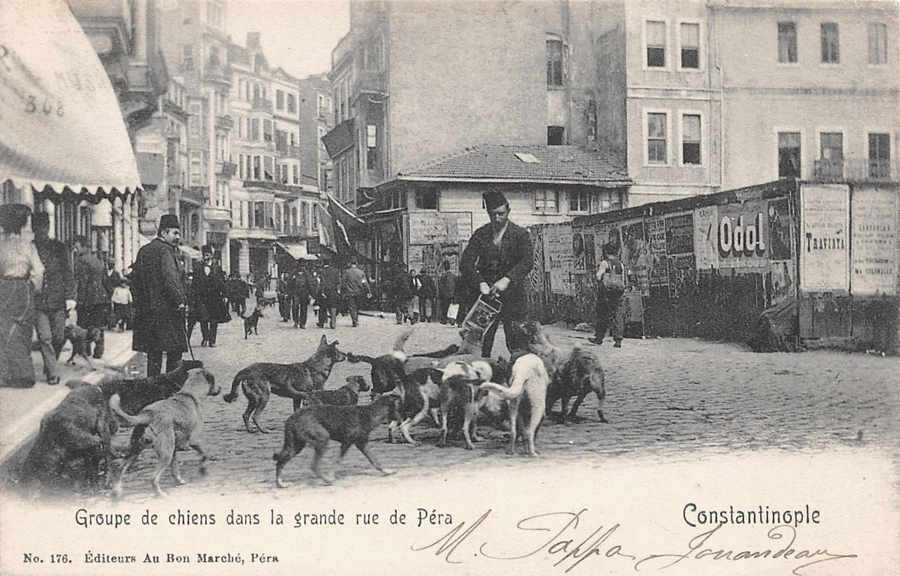
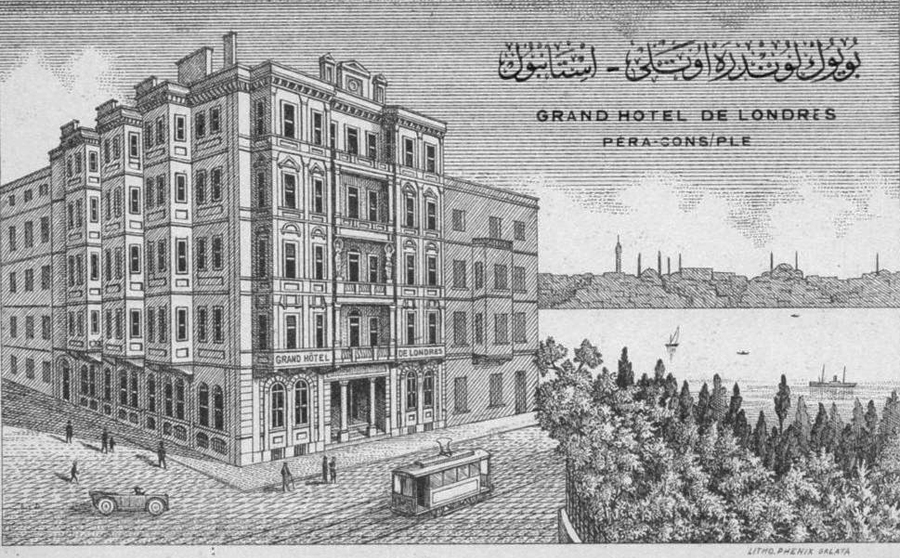
Some postcard images of Pera district to give a sense of the area early in the 20th century.
Interview conducted by Craig Encer
